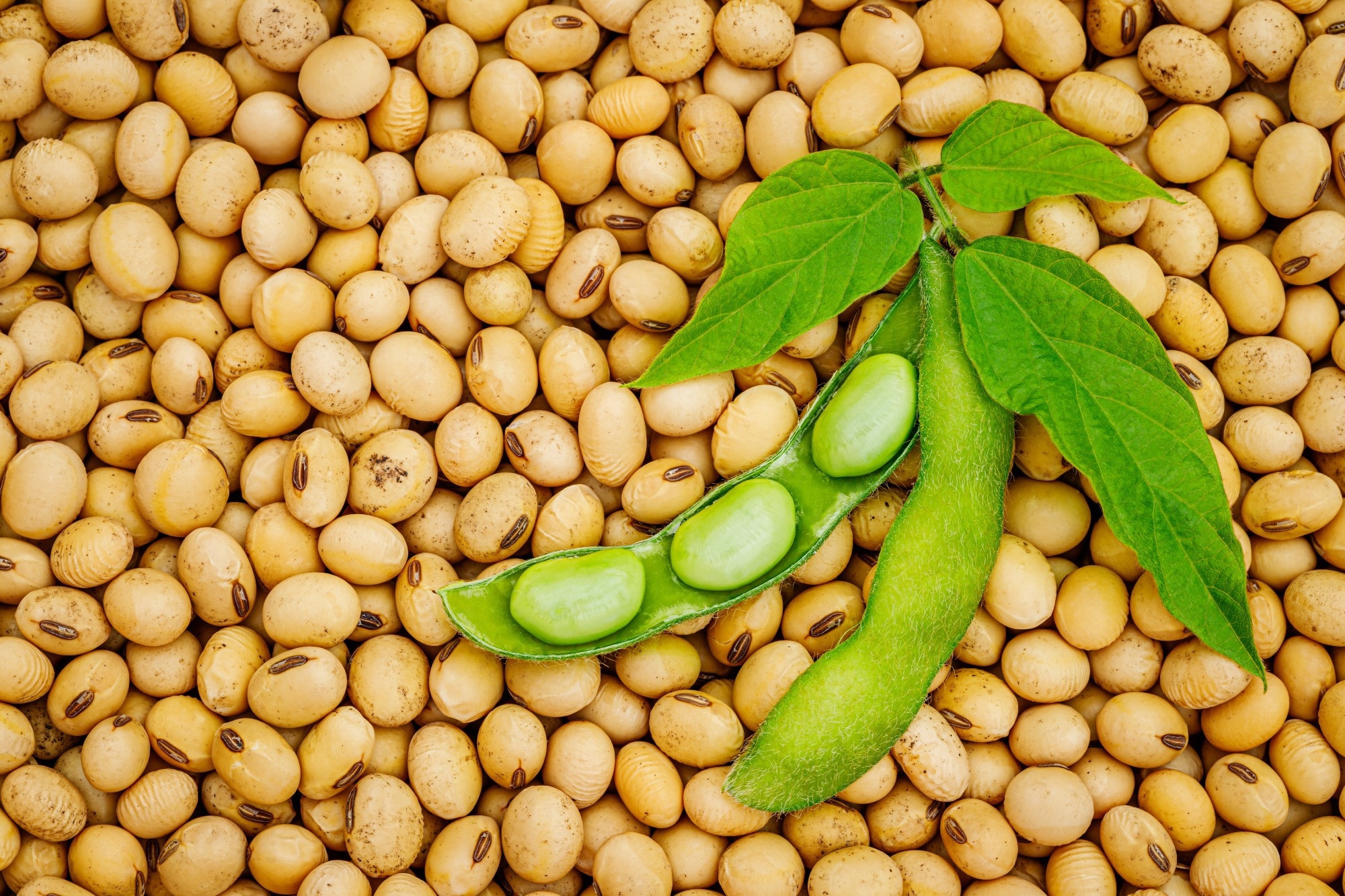Soybean, an economically essential legume worldwide, is enriched in dietary plant-based protein, comprising several ingredients that make suitable meat substitutes. Soy protein may modulate gut health and significantly mitigate the risk of colorectal cancer (CRC) by influencing the gut microbial constitution and activities.
 Soy and Gastrointestinal Health: A Review. Image Credit: nnattalli / Shutterstock
Soy and Gastrointestinal Health: A Review. Image Credit: nnattalli / Shutterstock
About the review
In the present review, researchers presented the gastrointestinal (GI) benefits of soy consumption.
Literature search and soybean content
The PubMed database was searched in June 2021 to identify human and animal observational studies, meta-analyses, clinical trials, and reviews on the impact of soy intake on intestinal health. Initially, 1,024 records were identified, following which 20 records, including meta-analyses and reviews, and 33 records, including other types of study designs, underwent full-text screening and were considered for the final analysis. The majority of the included records focussed on the benefits of consuming soy milk on gastrointestinal health.
No other plant-based protein other than soy protein comprises all nine essential types of amino acid substances in sufficient quantity to meet the physiological needs of humans. In addition, soy proteins comprise almost double the amount of protein in frequently consumed legumes and beans and a greater amount of polyunsaturated fatty acids such as omega-6 fatty acids, linoleic acid, and α-linolenic acid than other legumes.
In addition, soy contains an equivalent amount of leucine to eggs and fish. Concerning GI health, the key nutritional constituents of soybeans include phytoestrogens, isoflavones, oligosaccharides (such as stachyose and raffinose), and soy proteins. Soy phytochemicals such as phytates, phytosterols, protease inhibitors, phenolic acids, and saponins have anti-carcinogenic properties. Genistein, an isoflavone in soy, could be used to manage tumors since genistein can induce apoptosis and cellular differentiation and inhibit angiogenesis and cellular proliferation.
In addition to the content of dietary fibers, mainly oligosaccharides, soybeans comprise non-starch-type polysaccharides such as cellulose, pectin, hemicellulose, xyloglucan, and pectic polysaccharides, that promote gut fermentation. Soybeans are also a great source of micronutrients such as zinc, iron, and calcium, usually in limited quantities in plant-sourced foods. In addition, the high content of calcium in soybeans makes them suitable dairy substitutes.
Effects of soybean intake on gut health
Various nutritional constituents of soy milk, soybeans, and textured soy proteins escape digestion in the upper gastrointestinal tract and become substrates for microbial organisms that reside in the colon. Studies have reported either an inverse or no relationship between soy (particularly isoflavone) consumption and the risk of CRC. Fermented soy milk, instead of regular soy milk, has shown more consistent fecal microbiome alterations, probably due to probiotic effects, especially among equol-metabolizing individuals.
The oligosaccharides in soy products increase fecal and caecal short-chain fatty acid (SCFA) content, which supply energy to colonocytes, regulate regulatory T lymphocyte counts, and exert protective physiological effects on various organs of the human body. However, a high-level intake of soy proteins (above 25.0% weight) can induce genotoxic and cytotoxic damage to the intestine, which can be lowered by adding fermentable fibres to soy-based diets.
Fermented soy products, such as tofu, contain microbes such as Streptococcus, Bifidobacteria, and Enterococcus. Soy consumption, particularly fermented soy milk, can increase the abundance of Lactobacilli, Fusobacterium prausnitzii, Coprococcus, Faecalibacterium, Roseburia, Parabacteroides, and Faecalibacterium prausnitzii.
On the contrary, soy intake reduces the abundance of Bacteroidaceae, Porphyromonadaceae, Ruminococus, and Lachnospiraceae. However, lowered Lactobacillus abundance has also been reported, followed by soy intake, in a few studies. Replacing dietary casein with soy-containing milk can reverse microbial imbalances by elevating the Firmicutes to Bacteroidetes ratio in the fecal microbiome.
By restoring gut microbial balance, soy can improve several measures of inflammation and intestinal cellular damage. Further, soy protein can modulate the metabolism of bile acids in the intestines by elevating the ratio of secondary to primary bile acids and expanding the taxa that could be involved in bile acid transformation.
A murine model-based study reported that combining raffinose and soy proteins considerably increased immunoglobulin A (IgA) antibody titers in the caecum, an effect not observed in the raffinose and casein group. This increase in IgA titers is considered a favorable response to prevent pathogenic microbes from invading the colon.
Conclusions
Overall, the review findings showed that soy foods could improve GI health by increasing the abundance of beneficial microbes and reducing that of pathogenic microbes, reducing gut inflammation and associated cell damage. The GI-protective effects against cancer and intestinal diseases are pronounced by the use of fermented soy milk (rather than unfermented) and among individuals with equol-metabolizing potential.
However, existing data has emphasized the use of soy milk, which has a low protein content. Therefore, further research, including large-scale randomized controlled trials (RCTs), is required to assess the benefits of consuming other soy-based products, including those comprising textured soy proteins in high amounts, to guide dietary decision-making and policy formulation.